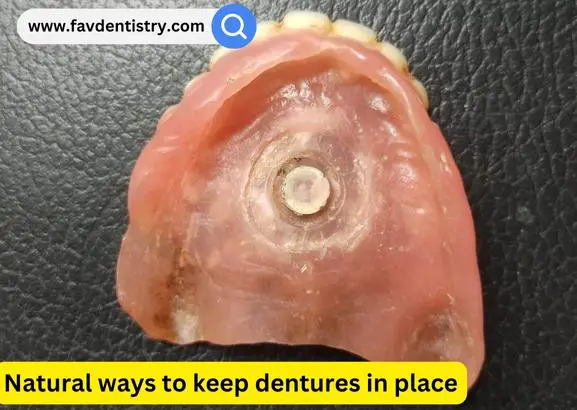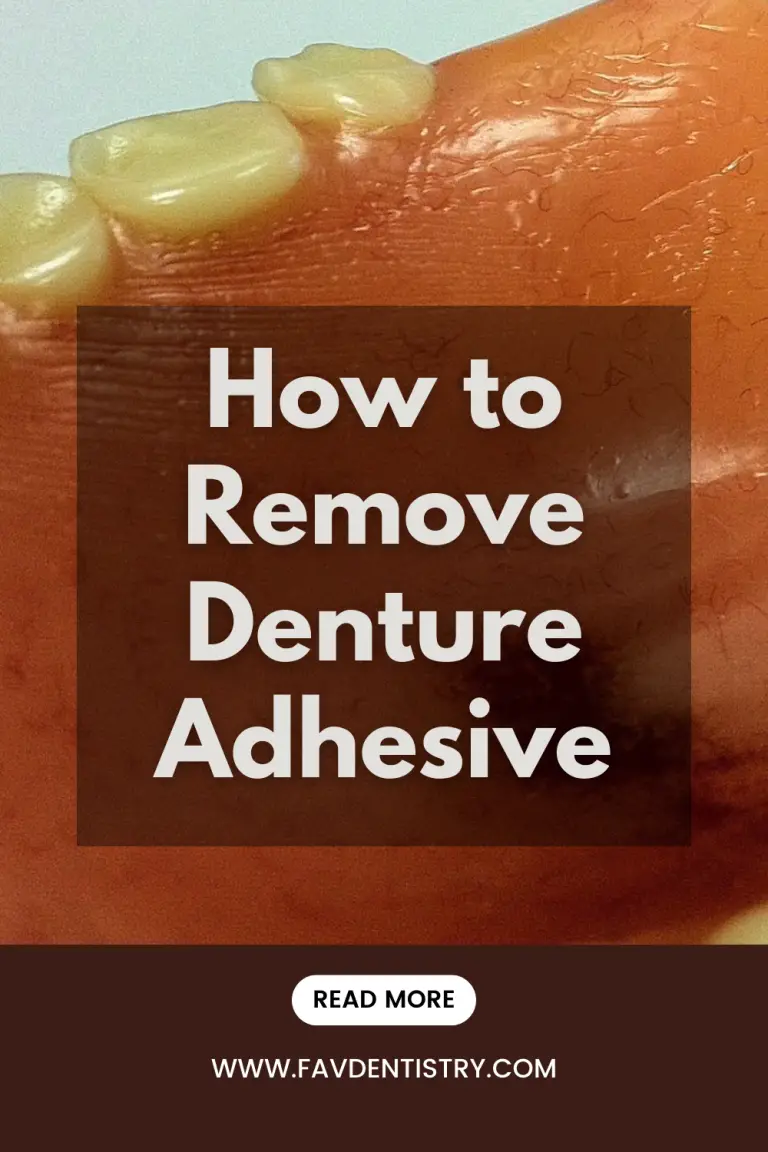Last Updated on 2 weeks by DR. ALBIN SIPES
There are two types of dentures: full and partial dentures. Full dentures are used when all the teeth are missing, while partial dentures are used when some natural teeth remain.
Dentures are removable appliances that are used to replace missing teeth and restore the function and appearance of the mouth. They are typically made from a combination of metal and acrylic materials. Full dentures are designed to replace a complete upper or lower arch of teeth, while partial dentures are used when only a few teeth are missing.
The type of denture recommended will depend on the individual’s specific needs and circumstances. Dentures can significantly improve chewing ability, speech, and smile aesthetics. It is important to consult with a dental professional to determine the best type of denture for your situation.
Understanding Dentures: An Overview
Dentures are a common and effective solution for people who have lost some or all of their natural teeth. These removable appliances not only restore the appearance of a full set of teeth but also improve oral functions such as speaking and chewing.
Understanding the basics of dentures can help you make informed decisions about your dental health. Let’s delve into the key points about dentures.
What Are Dentures?
- Dentures are prosthetic devices designed to replace missing teeth and surrounding tissues.
- They are typically made from acrylic resin, metal, or a combination of both materials.
- Dentures can be complete or partial, depending on whether a patient needs to replace all or only a few missing teeth.
- Complete dentures replace an entire arch of missing teeth, while partial dentures replace multiple missing teeth and are supported by the remaining natural teeth.
How Do Dentures Work?
- Dentures are custom-made to fit the unique shape of your mouth and can be placed in the upper or lower jaw.
- Complete dentures are held in place by suction or adhesive, while partial dentures use a metal framework and clasps to secure them to adjacent teeth.
- Dentures provide both aesthetic and functional benefits, giving you a natural-looking smile and restoring your ability to speak and eat comfortably.
- Regular cleaning and maintenance are essential to ensure the longevity and effectiveness of dentures.
Why Do People Need Dentures?
- The most common reason people need dentures is tooth loss due to factors such as decay, gum disease, or trauma.
- Missing teeth can have a significant impact on a person’s confidence, appearance, and overall quality of life.
- Dentures not only restore the function of teeth but also help maintain facial structure by supporting the lips and cheeks.
- Additionally, dentures can prevent remaining teeth from shifting into the empty spaces, which can lead to bite problems and further tooth loss.
Understanding the different types of dentures, how they work, and why people need them is crucial for anyone considering this dental solution. Whether you require complete dentures or partial dentures, these prosthetic devices can greatly improve your oral health and restore your smile.
Complete Dentures: The Ultimate Replacement
Complete dentures are a popular option for those who are missing all of their natural teeth. These dental appliances are designed to replace the entire arch of teeth, providing a seamless and natural-looking smile. With advancements in technology, complete dentures have become more comfortable, functional, and aesthetically pleasing than ever before.
Whether you have lost your teeth due to gum disease, tooth decay, or an accident, complete dentures can offer a reliable and effective solution. In this section, we will explore the benefits of complete dentures, discuss who is a good candidate for this type of dental restoration, and provide tips for taking care of your dentures to ensure their longevity and functionality.
Let’s dive in!
Complete Dentures Explained:
- Complete dentures are removable dental prosthetics that replace all of the natural teeth in a dental arch, either the upper or lower jaw, or both.
- They are custom-made to fit the unique contours of your mouth, providing a comfortable and secure fit.
- Complete dentures are made from a combination of acrylic resin, porcelain, or a combination of both.
Benefits Of Complete Dentures:
- Restored appearance: Complete dentures can give you a natural-looking smile, improving your overall appearance and boosting your confidence.
- Improved speech: Missing teeth can affect your speech, but complete dentures help restore your ability to speak clearly and confidently.
- Enhanced chewing ability: With complete dentures, you can regain the ability to chew a variety of foods, allowing for a more balanced and nutritious diet.
- Support for facial muscles: By replacing missing teeth, complete dentures help support your facial muscles, preventing a sunken and aged appearance.
Who Is A Good Candidate For Complete Dentures?
- Individuals who have lost all their teeth due to decay, gum disease, or trauma are good candidates for complete dentures.
- Complete dentures are also suitable for those with severely damaged teeth that cannot be saved through other dental treatments.
- Good oral health and overall health are important factors to consider before opting for complete dentures, as they require regular maintenance and care.
Taking Care Of Complete Dentures:
- Remove and rinse your dentures after eating to remove food debris and plaque.
- Brush your dentures daily with a soft-bristle brush and denture cleanser to prevent stains and maintain their cleanliness.
- Soak your dentures in a denture solution or water overnight to keep them moist and prevent warping.
- Schedule regular check-ups with your dentist to ensure proper fit and function of your complete dentures.
Remember, complete dentures can be a life-changing solution for those missing all their teeth. With their numerous benefits and advancements in dental technology, they offer an ultimate replacement that restores both the functionality and aesthetics of your smile. By understanding who is a suitable candidate for complete dentures and practicing proper care, you can enjoy the benefits of this remarkable dental restoration.
Partial Dentures: Filling The Gaps
Partial Dentures Defined
Partial dentures are dental prosthetics that are specifically designed to fill in the gaps created by missing teeth. They are removable and are composed of artificial teeth attached to a gum-colored base. Partial dentures are an excellent option for those who have lost some of their teeth but still have some healthy teeth remaining.
Advantages Of Partial Dentures
Partial dentures offer several advantages for individuals experiencing tooth loss. These include:
- Restoring proper chewing and biting functionality, allowing for easier and more efficient digestion of food.
- Enhancing speech and pronunciation by filling in the gaps and preventing speech impediments that can occur with missing teeth.
- Maintaining the structural integrity of the jawbone by providing support and preventing bone loss.
- Preventing the remaining natural teeth from shifting or drifting out of alignment.
- Improving the overall aesthetics of the smile, enhancing self-confidence and self-esteem.
Types Of Partial Dentures
Partial dentures come in various types, each with its own unique features and benefits. The main types of partial dentures include:
- Metal-based partial dentures: These dentures are constructed with a metal framework for added durability and stability. They securely attach to the remaining natural teeth using clasps, providing a secure and comfortable fit.
- Flexible partial dentures: Made from a flexible material, these dentures offer greater comfort and a more natural appearance. They adjust easily to the shape of the mouth and do not require metal clasps for attachment.
- Acrylic-based partial dentures: These dentures are made entirely of acrylic and are the most affordable option. While they may not be as durable as metal-based dentures, they can still provide a functional and aesthetic solution for tooth loss.
Maintenance And Care For Partial Dentures
To keep your partial dentures in optimal condition, it is important to follow proper maintenance and care practices. Here are some tips to ensure the longevity and performance of your partial dentures:
- Clean your dentures daily with a soft-bristled toothbrush and a non-abrasive denture cleanser.
- Rinse your dentures thoroughly after each meal to remove any food particles and prevent plaque buildup.
- Soak your dentures overnight in a denture cleaning solution to keep them fresh and free from bacteria.
- Handle your dentures with care, avoiding dropping them or exposing them to excessive heat.
- Visit your dentist regularly for check-ups and adjustments to ensure the proper fit and function of your partial dentures.
By understanding the different types of partial dentures and implementing the necessary care practices, individuals can confidently enjoy the benefits of these dental prosthetics, restoring their smile and overall oral health.
Implant-Supported Dentures: A Modern Solution
Implant-supported dentures have revolutionized the field of dentistry, providing a modern solution for individuals who have lost multiple teeth. Unlike traditional dentures, which rely on adhesive or suction to stay in place, implant-supported dentures are anchored in the mouth using dental implants, resulting in increased stability and functionality.
In this section, we will explore the introduction to implant-supported dentures, the benefits they offer, the different types available, and the procedure for getting them.
Introduction To Implant-Supported Dentures
Implant-supported dentures are a highly advanced dental restoration option that combines the benefits of dental implants with the convenience of dentures. These dentures are securely attached to dental implants that are surgically placed in the jawbone, providing a stable foundation for the replacement teeth.
This innovative solution offers individuals with missing teeth the ability to regain their smile, confidence, and oral functionality.
Benefits Of Implant-Supported Dentures
Implant-supported dentures offer several significant benefits compared to traditional dentures. Some of the key advantages include:
- Enhanced stability: The dental implants provide a secure anchor for the dentures, preventing them from slipping or moving while chewing or speaking.
- Improved chewing efficiency: With implant-supported dentures, individuals can enjoy a wider range of food options and regain their ability to chew properly.
- Preservation of jawbone: Dental implants stimulate the jawbone, preventing bone loss and maintaining the natural facial structure.
- Increased comfort: Implant-supported dentures feel more natural and comfortable compared to traditional dentures, as they are securely attached to the jawbone.
- Long-term durability: With proper care and maintenance, implant-supported dentures can last for many years, providing a long-term solution for tooth loss.
Types Of Implant-Supported Dentures
There are two main types of implant-supported dentures: bar-retained dentures and ball-retained dentures. Let’s explore each type:
- Bar-retained dentures: In this type, a thin metal bar is attached to multiple dental implants placed in the jawbone. The denture is then securely clipped onto the bar using attachments. This design provides excellent stability and support for the denture.
- Ball-retained dentures: Also known as stud-attachment dentures or implant-retained overdentures, ball-retained dentures feature a series of small metal attachments on the implants. The corresponding attachments on the denture allow it to snap onto the implants, creating a secure connection.
Procedure For Getting Implant-Supported Dentures
The process of getting implant-supported dentures typically involves several steps:
- Initial consultation: Your dentist will evaluate your oral health, discuss your treatment goals, and determine if you are a suitable candidate for implant-supported dentures.
- Dental implant placement: Dental implants will be surgically placed into the jawbone. The number of implants required will depend on your specific needs.
- Healing period: It takes several months for the implants to fuse with the jawbone through a process called osseointegration. During this time, temporary dentures may be provided to maintain aesthetics and function.
- Denture fabrication: Once the implants have fully integrated, impressions of your mouth will be taken to create custom-made dentures that perfectly fit your smile.
- Denture attachment: The final step involves attaching the dentures to the dental implants, ensuring a secure and comfortable fit.
Implant-supported dentures offer a modern and effective way to restore your smile and regain your oral function. Consult with your dentist to determine if this advanced dental solution is right for you.
Snap-In Dentures: A Secured Fit
Snap-in dentures, also known as implant-supported dentures, offer a secure and reliable fit for those who are seeking a more comfortable and stable denture option. These dentures utilize dental implants to anchor the denture in place, providing a snug fit that eliminates the worry of dentures slipping or moving.
If you’re considering snap-in dentures as a solution for missing teeth, it’s important to have a clear understanding of what they entail, their advantages over traditional dentures, as well as how to take proper care of them.
Understanding Snap-In Dentures
- Snap-in dentures are a type of removable denture that is secured in place using dental implants.
- They consist of a gum-colored base, which supports artificial teeth that closely resemble natural teeth.
- The dentures snap onto the dental implants, offering a secure and stable fit that allows for better chewing and speaking.
Advantages Of Snap-In Dentures
- Enhanced stability: Unlike traditional dentures which rely on adhesives or suction to stay in place, snap-in dentures are firmly attached to dental implants. This provides a more stable foundation and reduces the risk of slipping or dislodgment.
- Improved comfort: Snap-in dentures distribute biting and chewing forces more evenly, making them more comfortable to wear.
- Better oral health: The dental implants used to support snap-in dentures help to preserve jawbone integrity and prevent bone loss, which is common with traditional dentures.
- Natural appearance: Snap-in dentures are customized to match the color, shape, and size of your natural teeth, resulting in a seamless and natural-looking smile.
Difference Between Snap-In Dentures And Traditional Dentures
- Stability: Snap-in dentures offer a higher level of stability and security compared to traditional dentures, thanks to the dental implants that anchor them in place.
- Comfort: The snug fit provided by snap-in dentures eliminates the discomfort and irritation often associated with traditional dentures that can move during chewing or speaking.
- Functionality: With snap-in dentures, you can enjoy a wider variety of foods as they provide improved biting and chewing capabilities.
- Bone preservation: Snap-in dentures help stimulate the jawbone, preventing bone resorption and maintaining facial structure, whereas traditional dentures may contribute to bone loss over time.
Caring For Snap-In Dentures
- Cleanliness: Remove and clean the snap-in dentures daily to maintain oral hygiene. Use a soft brush and a non-abrasive denture cleaner or mild soap to gently scrub them.
- Oral health: Brush your remaining natural teeth, gums, and tongue regularly to prevent bacterial buildup and maintain good oral health.
- Regular check-ups: Schedule regular dental check-ups to ensure the fit and function of your snap-in dentures and address any potential issues promptly.
- Avoid damaging habits: Refrain from biting on hard objects, such as ice or pens, as this can damage the dentures or their supporting dental implants.
- Keep dentures moist: When not wearing the dentures, store them in a denture cleaning solution or plain water to prevent them from drying out.
With snap-in dentures, you can confidently smile, speak, and eat without the worry of your dentures slipping or being unstable. These dentures provide improved comfort, stability, and aesthetics compared to traditional dentures. By understanding the key differences and properly caring for your snap-in dentures, you can enjoy the benefits they offer for years to come.
Customizing Your Dentures: Options And Enhancements
If you’re considering dentures as an option for replacing missing teeth, you may be wondering about the different types available and how they can be customized to meet your specific needs. In this section, we’ll discuss the various denture materials and enhancements that can be tailored to provide a comfortable and natural-looking smile.
Let’s explore the options and benefits in more detail.
Denture Materials And Their Benefits
- Acrylic dentures: Acrylic dentures are the most common type of dentures. They are made from a pink acrylic base that closely resembles the gums, with artificial teeth attached to it. Acrylic dentures are lightweight and easy to adjust, making them a popular choice for many patients. They are also more affordable compared to other materials.
- Porcelain dentures: Porcelain dentures provide a more natural appearance as they closely resemble the color and translucency of natural teeth. They are highly durable and less prone to staining, making them a great option for those looking for long-lasting dentures. However, they can be more expensive and may require additional care to prevent damage.
- Composite dentures: Composite dentures are made from a combination of acrylic resin and other materials, such as porcelain or metal. They offer flexibility in terms of customization and can be adjusted easily to achieve the desired fit. Composite dentures are also relatively affordable and can provide a natural-looking smile.
Denture Enhancements
- Denture relines and rebases: Over time, the shape of your gums may change, causing dentures to become loose or uncomfortable. Denture relines involve adding a new layer of material to the base of the denture to improve the fit. Rebases, on the other hand, involve replacing the entire acrylic base. These enhancements can help maintain the stability and comfort of your dentures.
- Denture repairs and adjustments: Accidents happen, and dentures may break or require adjustments due to normal wear and tear. Denture repairs involve fixing any damages, such as cracks or broken teeth, while adjustments ensure a proper fit and comfortable wear. It’s important to consult your dentist for any necessary repairs or adjustments to maintain the functionality and aesthetics of your dentures.
- Denture cleaning solutions: Keeping your dentures clean is vital for oral hygiene and maintenance. There are many denture cleaning solutions available, including tablets, pastes, and soaking solutions. These products help remove stains, bacteria, and odors from your dentures. It’s essential to follow the manufacturer’s instructions and consult your dentist for recommendations on the best cleaning solutions for your specific denture material.
As you can see, there are various denture materials and enhancements to choose from when customizing your dentures. Understanding the benefits and options available will help you make an informed decision in partnership with your dentist. Remember to consult your dental professional to determine the most suitable denture type and enhancements for your individual needs.
Choosing The Right Dentures For You
Dentures are an essential dental restoration for individuals with missing teeth. If you’re considering getting dentures, it’s crucial to choose the right type for your specific needs. Factors such as your budget, lifestyle, and your dentist’s recommendations all play a significant role in determining which dentures are best for you.
Factors To Consider When Selecting Dentures:
- Budget: The cost of dentures can vary depending on the type and quality you choose. Understanding your budget will help you narrow down your options and find dentures that are both affordable and suitable for your needs.
- Lifestyle: Your lifestyle and personal preferences should also be taken into consideration when selecting dentures. Are you an active individual who enjoys participating in sports or outdoor activities? If so, you may need dentures that are more durable and secure to withstand these activities.
- Dentist’s recommendations: Consulting with your dentist is essential in the decision-making process. They will consider factors such as your oral health, bone structure, and the number of missing teeth to recommend the most suitable denture option for you. Your dentist’s expertise and personalized advice are invaluable in ensuring you make an informed decision.
Remember, if you’re unsure about which dentures to choose, consulting with a dentist is always the best way to go. They can provide you with the guidance you need, considering your specific circumstances. So, make sure to schedule an appointment and discuss your options with a dental professional.
Frequently Asked Questions For How Many Types Of Dentures Are There
How Many Types Of Dentures Are There?
There are three main types of dentures: complete dentures, partial dentures, and implant-supported dentures.
Conclusion
There are several types of dentures available to cater to the varying needs of individuals with missing teeth. Removable partial dentures are an affordable and convenient option for those with a few missing teeth, while complete dentures are a suitable solution for individuals with no teeth remaining.
For those seeking a more stable and secure alternative, implant-supported dentures offer a long-term solution. Immediate dentures are designed to be worn immediately after tooth extraction, allowing patients to maintain their smile throughout the healing process. Flexible dentures provide a comfortable and natural-looking option for individuals with irregular jawbones.
It is crucial to consult with your dentist to determine which type of denture is best suited for you based on your oral health condition, budget, and personal preferences. Remember, with proper care and maintenance, dentures can significantly enhance the quality of your life by restoring your ability to eat, speak, and smile with confidence.
So, take the first step towards reclaiming your oral functionality and regain your beautiful smile today!





